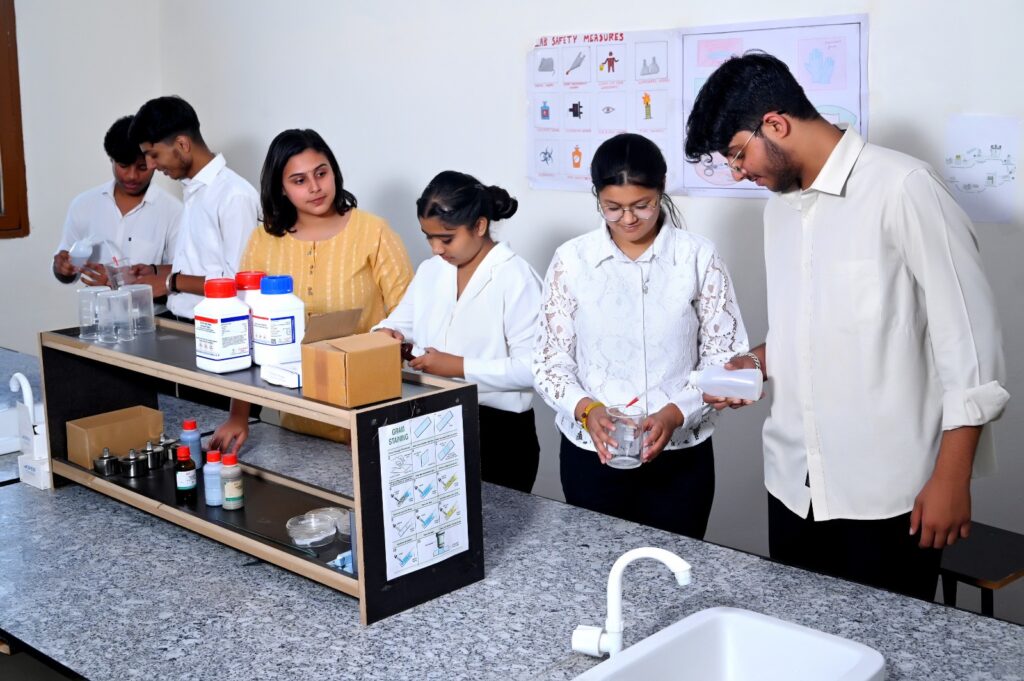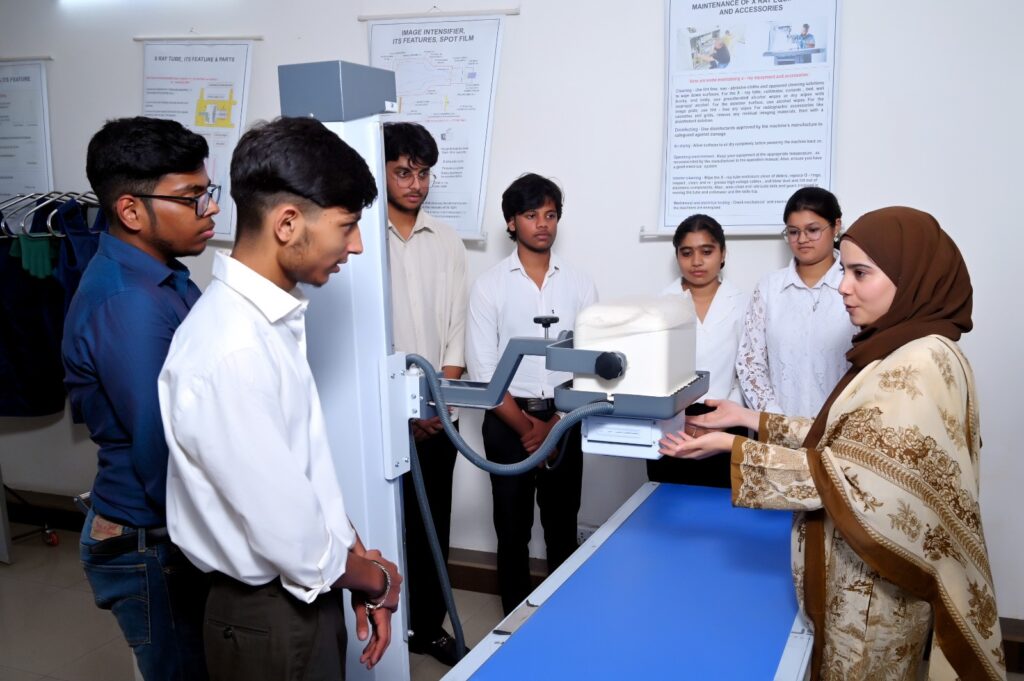B.Sc. in Radiology & Imaging Technology
Introduction
The B.Sc. in Radiology & Imaging Technology is a dynamic undergraduate program that prepares students to become skilled professionals in the field of medical imaging and diagnostic radiology.
This course is designed to train students in the operation and management of advanced imaging technologies used to diagnose and treat various medical conditions.
Students gain comprehensive knowledge of imaging modalities such as X-ray, CT (Computed Tomography), MRI (Magnetic Resonance Imaging), ultrasound, and nuclear medicine.
The program focuses on both the theoretical foundations and practical applications of radiologic technology, anatomy, physiology, radiation physics, and patient care.
Students learn to operate sophisticated imaging equipment, capture high-quality diagnostic images, and ensure patient safety by following strict radiation protection guidelines.
Hands-on clinical training is a key part of the curriculum, with students gaining real-world experience through hospital internships and diagnostic centers.
The course also covers image processing, interpretation basics, and maintaining imaging equipment, preparing graduates to meet the evolving demands of modern healthcare.
Ethical practices, patient confidentiality, and communication skills are emphasized to ensure compassionate and professional interaction with patients.
Our faculty consists of experienced radiologists, imaging technologists, and healthcare educators dedicated to delivering quality education and mentorship.
The curriculum is aligned with national and international standards, ensuring graduates are equipped to work globally in diverse healthcare settings.
Students learn to work collaboratively with radiologists, physicians, and other healthcare professionals to provide accurate diagnostic information critical for patient treatment.
The program also introduces research methods, encouraging students to contribute to advancements in imaging technology and healthcare diagnostics.
With advancements in imaging technology, the demand for qualified radiologic technologists continues to grow, making this program a gateway to a promising career.
Career Opportunities After B.Sc. Radiology & Imaging Technology
Graduates of the B.Sc. Radiology & Imaging Technology program have a wide range of career options, including:
- Radiologic Technologist, performing diagnostic imaging procedures in hospitals and clinics
- MRI Technologist, specializing in magnetic resonance imaging scans
- CT Technologist, conducting computed tomography scans for detailed internal imaging
- Ultrasound Technician (Sonographer), providing ultrasound imaging services
- Nuclear Medicine Technologist, handling radioactive materials for diagnostic purposes
- Radiation Safety Officer, ensuring compliance with radiation safety standards in healthcare settings
- Medical Imaging Specialist in diagnostic centers and specialized imaging clinics
- Clinical Instructor or Trainer educating future imaging professionals
- Research Associate working in imaging technology development and healthcare research
- Healthcare Consultant advising hospitals on imaging equipment and technology management
Graduates can also pursue advanced degrees such as MSc in Radiology, Medical Physics, or Healthcare Technology for specialized roles.
Opportunities exist in government hospitals, private diagnostic centers, research institutions, medical equipment companies, and teaching hospitals.
With healthcare relying heavily on accurate imaging for diagnosis and treatment, radiology technologists play a crucial role in improving patient outcomes.
Join the B.Sc. Radiology & Imaging Technology program to become a vital part of the healthcare system, combining technology, science, and patient care.
53 Years
Experience
150+
Trained Faculty
10000+
Students placed
Contact Us
Careers after B.Sc. Radiology & Imaging Technology
- Radiologic Technologist,
- MRI Technologist
- CT Technologist
- Ultrasound Technician (Sonographer)
- Nuclear Medicine Technologist
- Radiation Safety Officer
- Medical Imaging Specialist
- Clinical Instructor or Trainer
- Research Associate
- Healthcare Consultant
Our Placement Partners








